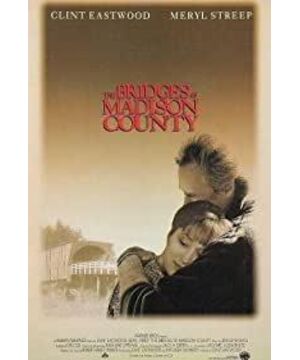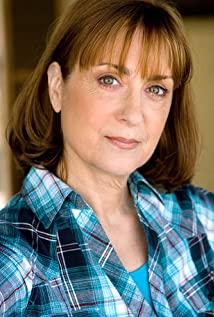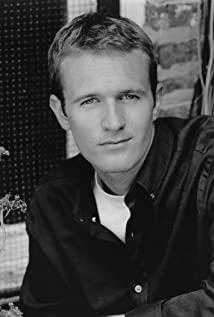There are many comments about it. It is such a classic film! I also try to express my feelings in many ways. There are not many movies that can make people cry at this time. I took a lot of movie watching notes, but I was denied it by myself—so popular! The movie made people in the 1990s remember the American countryside in the 1960s, thereby creating a history of more than 30 years. We may say that time is the real background of "The Bridge", or that time is the "Last Dream of the Covered Bridge". real clues and themes. Using the transformation of time to connect "Long Dreams of the Covered Bridge" makes the narrative dimension of this popular love story particularly tense.
The film is completed in the memory and letter reading of the heroine, Meryl Streep's son and daughter of Finchka, using many transitions—from narration time to story time, and from story time again. Turning to narrative time, there are about 5 such time transitions. As the story unfolds, I gradually get used to the temporary confusion of the plot, and I never understand it well enough to accept it. And it was at the same time that the two brothers and sisters began to think about their own lives while searching for the feelings that their mother had. Unlike the anxiety in which the mother fell into and withdrew, the brother and sister, after more than 30 years, have been quite dazed and confused, and their love and life no longer have the fiery and sudden bursts of their mothers. He dragged his mediocre reality back to the passion of Qian's mother for more than 30 years. I believe that the two are consistent. The mother's passion is what the brothers and sisters lack, and what the brothers and sisters want to maintain happens to be the family harmony that the mother takes care of until her death.
The elder sister's tolerance and care, the younger brother's anger and complaints, no matter what kind of state of mind they were in, the two opened the box left by their mother, saw the relic, saw the three notes, and officially turned to the story-Finchka was busy doing it. I take the husband, sister, and brother out, and then the story begins-I believe I don't need to repeat it.
According to the standard from story time to narrative time, the first transition is here: Finchka and Rob finish their dinner, go for a walk, and go back to the house. At this time, Finkeka showed a strange expression on her face. From the beginning of her eloquence to her preoccupation, she struggled with herself. This is a woman with dreams and longings. She has many girlhood thoughts, but she is also a wife and mother of two children. With such an identity in the same room with a man with grace and experience, she is destined to hesitate. To be hesitant, to be uneasy At this time, Rob said (can win a woman's favor and empathy is inseparable): We did nothing wrong, and there was no hidden thing. A word comforted the guilty Finchka, followed by a toast and silence. The quiet scene was abruptly interrupted by the blunt narrative time while I was immersed in reverie.The conversation between the sister and brother at this time seemed particularly inappropriate. Even though the director used the same scene and similar tone, he wanted to make the same scene transition. He abruptly pulled the viewer from romantic intoxication to a realistic conversation, and the first sentence turned out to be Mike's speculation with strong subjective consciousness and even blasphemy of pure feelings: he must take this time to pour her drunk! ——I angrily wrote down the word "abrupt" on my viewing notes!
Although it is abrupt, it must be watched. The siblings talk about their failed marriages and suddenly realize the story has entered a second dimension. Mike asked Caroline: I don't know if your relationship is so bad, so why are you still guarding him? Caroline looked at her brother, was speechless, smiled bitterly, and then turned to the story time-Finchka asked Rob: Why divorce? Rob replied, "Home everywhere." The two problems are different, but they appear at the top and bottom of the moment. Mike's question seems to be replaced by Rob's to ask Finchka: I don't know if you are so unhappy, so why are you still guarding this house? At that moment, Finkeka must have responded with a wry smile, but her heart was surging. An Emergence: The marital status of mothers and children showed a correlation.
The second transition was when Finchka and Rob got intimate and danced together, from a dark scene to the scene where Caroline was reading the diary. The mother wrote in the diary that "I don't regret it", and the time was very short., and immediately turned to Finchka and Rob lingering in bed. With the previous experience of watching movies, I have adapted to this special session, and I have added a lot to the black scene.
The third transition is when the bed scene in the music turns to Caroline reading her mother's diary in the same music. This time, the transition is very long. Next, the younger brother came back from the town bar, still expressing his inability to let go of his mother's behavior. What impressed me the most was the sentence, "I think my mother should have no lust." Taking advantage of the moonlight, the sister and brother went out for a walk, discussed cheating, complained about marriage, and threw a question, which was what the moviegoers wanted to know: if she was so unhappy, why didn't she leave? Caroline hesitated, opened her mouth several times, and finally took out the diary, trying to find the answer. But the film didn't tell us directly, it just let Mike read the diary. Turning to Finchka's inner struggle again, looking at Rob sleeping beside him, this time, whether to go or stay is a question.
The fourth turn came naturally. Finchka went to visit Lucy, the woman who cheated on her but felt the same way as Finchka. The original words in the diary were transferred to the reading aloud by the sister and brother by the creek., and faded into the old Finchka to take care of his father's medicine. It turns out that time has passed for so long. Like the siblings, we have also gone through the journey of Finchka from calm to passion and back to calm again. This journey was difficult, but it was overcome. As Finchka herself said, if you have something to do, you will be safe.
The fifth and last time, the silver-haired Finchka received an email from the late Rob, read the text, saw the necklace, looked out the window, and mixed emotions. At this time, Streep took it right. Especially good with eyes, with expressions, with actions, people can not help but sigh. Slowly approaching are two familiar wine glasses, the familiar color of wine, the sister and brother drinking together; this scene seems familiar; very similar to Finchka and Rob back then-stand up to applaud: The last transition natural and meaningful. It was the siblings who understood their mother, and it was this 4-day relationship that was recognized. In addition, it is worth raising a glass that the two brothers and sisters solved their own marriage problems, and the second level of the story came to a conclusion.
At this point, the film has completed the conversion of story time and narrative time, and then it is left to the narrative time to complete, until the siblings fulfill their mother's last wish and sprinkle their ashes into the river under the Madison Bridge. It lists the transitions between the two points in so many films, inadvertently sorts out the context of the story, and also shows the siblings, especially the younger brother Mike, from anger to silence to understanding to finally relief. It is undeniable that such a form has interrupted the development of the stories of Finchka and Rob to a certain extent, and lost the coherence that they should have, but it is just right inlaid with the second level of the story-the sister and brother, who are also middle-aged people's marital problems. I just kept asking: Was the concept of marriage that crossed the annual history in the movie really created? Does such a crossover weaken the main story? Even though the transitions are getting more and more natural, the integrity of the story has been dismembered again and again, and the coherence has been challenged, especially for you and me, who are deeply involved in the plot.
View more about The Bridges of Madison County reviews











